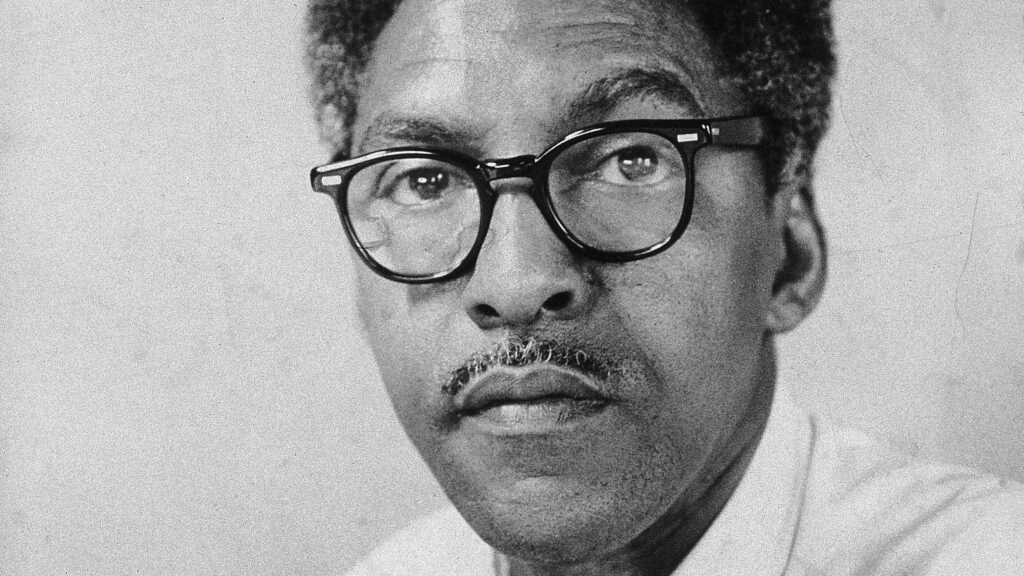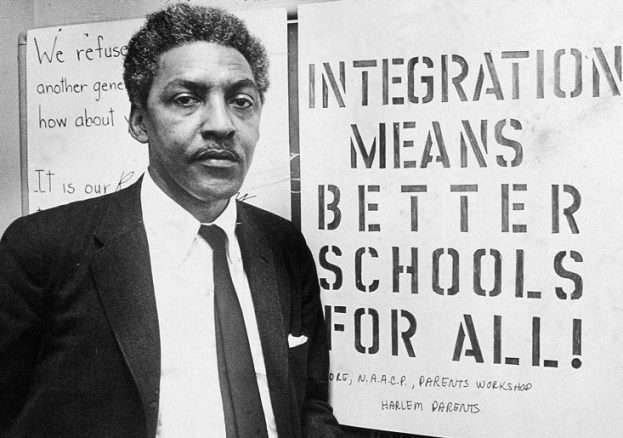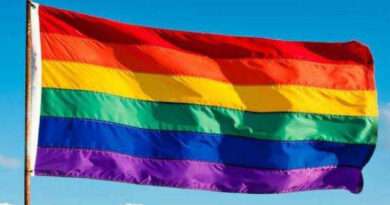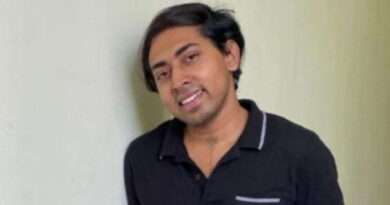Bayard Rustin – An Invisible Hero
By PoojaI (IG: @bypoojai )
“We need, in every community, a group of angelic troublemakers.”

“An invisible hero”, “a lost prophet” and “Brother Outsider” are what Bayard Rustin has been called. Behind the scenes, he was an indispensable force in the civil rights movement. While Dr. Martin Luther King Jr. was the face of it, Rustin was his silent, second-hand man organizing it all. A man whose life was shaped by the very prejudices the movement fought against, not only because of his race but also because of his sexuality. But Rustin has long been denied his proper place—largely because he was an openly gay man.
Born in West Chester, Pennsylvania, and raised by his relatively wealthy maternal grandparents. His grandmother, Julia was an early NAACP member and an influence in his early life. As a teenager, he opened up to her about how he preferred the company of men over women and she cautiously told him, “I suppose that’s what you need to do.” He led his life unashamed of being a gay, Black man.
Expelled from Wilberforce University after organizing a strike in 1936, Rustin completed activist training and moved to Harlem, New York in 1937. He was affiliated with various organizations and parties between 1937 and 1941, from the Quakers to the Fellowship of Reconciliation. As the race relations secretary for the FOR, Rustin proposed a march on Washington in 1941, to protest racial segregation in the armed forces. This march was ultimately canceled and Rustin departed from the FOR following disagreements with the leaders. He assisted in forming the Congress of Racial Equality (CORE) in 1942. Rustin spent the next few years learning non-violent civil resistance, traveling to India, Ghana, and Nigeria.
In 1953, Rustin was arrested for public sexual activity with another man in a parked car. This led to his sexual orientation being publicly known, he pled guilty and served 60 days in jail for “sex perversion”. Despite the tension it created between him and other activists, Rustin trail blazed on. In 1956, he joined to advise Martin Luther King Jr for the civil rights movement. Rustin was the one who convinced King to abandon armed protection, including a personal handgun. He believed a social movement “has to be based on the collective needs of people at this time, regardless of color, creed, race.”
Despite criticisms and shunning from other civil rights leaders regarding his sexual orientation, Rustin moved forward in organizing the March on Washington in 1962. Despite King’s support, NAACP chairman Roy Wilkins did not want Rustin to receive any public credit for his role in planning the march. Nevertheless, on September 6, 1963, a photograph of Rustin and Randolph appeared on the cover of Life magazine, identifying them as “the leaders” of the March. Rustin continued in the movement, organizing the New York School boycotts as well as strengthening labor movements.
In the 1980s, he was urged to engage in gay rights movements by his life-partner, Walter Naegle. He also testified on behalf of New York State’s Gay Rights Bill. In 1986, Rustin was invited to contribute to the book In the Life: A Black Gay Anthology. He declined, explaining
“I was not involved in the struggle for gay rights as a youth… I did not “come out of the closet” voluntarily—circumstances forced me out. While I have no problem with being publicly identified as homosexual, it would be dishonest of me to present myself as one who was at the forefront of the struggle for gay rights… I fundamentally consider sexual orientation to be a private matter. As such, it has not been a factor which has greatly influenced my role as an activist.”
Rustin passed away in 1987. In 2013, he was posthumously awarded the Presidential Medal of Freedom. Naegle accepted it on his behalf and said,

“Being black, being homosexual, being a political radical, that’s a combination that’s pretty volatile and it comes along like Halley’s Comet. Bayard’s life was complex, but at the same time, I think it makes it a lot more interesting.”
For all that Rustin did for the various civil rights and social justice movements, let’s not let him stay “an invisible hero” any longer.



